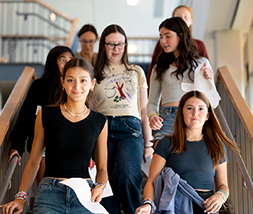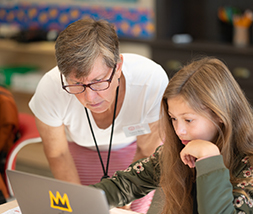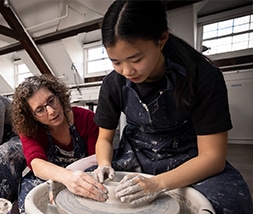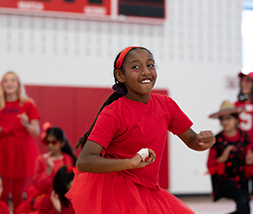Curriculum Guide
Health and Wellness
Class I
Students spend their year in health class focusing on building a safe, trusting community of peers; exploring physical, emotional and social health; practicing goal setting, decision making and communication skills; navigating relationships; understanding the basics of human development and puberty; and practicing social emotional skills.
Class II
Students continue their exploration of puberty and adolescent development, with a particular emphasis on the development of social-emotional skills and decision-making, both in real life and online. In addition, they focus on defining family, recognizing positive and negative influences in their lives, nutrition, fitness, and the importance of effective communication in relationships. Students participate in group projects, in special class discussions with Upper School peer supporters, and in conversations with adults in their families and communities.
Class III
Students prepare for middle school social life in Health Class, exploring self-esteem, communication, moral and ethical peer interactions, and ways to prevent and stand up to exclusion and unkindness. In addition, students practice ways to cope with stress, the importance of sleep, and the negative impact of alcohol, drugs and tobacco. Through discussions, group projects, and the use of media and technology, students learn to interact with and participate in society in strong and responsible ways.
Class IV
Students delve more deeply into questions about their own development and life path, and develop important skills to take care of themselves and advocate for others. A special emphasis is paid to mental health, analyzing positive and negative influences, sexuality, effective communication skills( including social networks), practicing refusal and decision-making skills, managing stress, and finally, making a successful transition to Upper School. Students in Class IV complete a wellness capstone project that explores a wellness topic that most interested them during their lower school experience.





